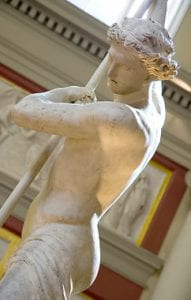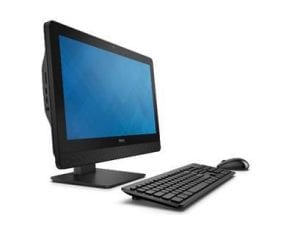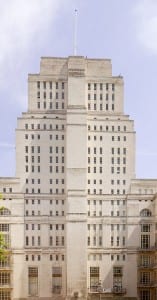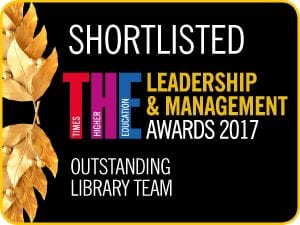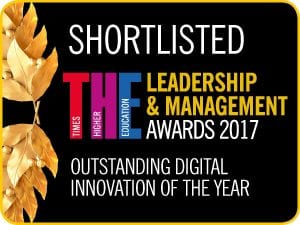Learning about TOPS
As you already know, UCL is embarking on an initiative called Transforming Our Professional Services (TOPS). This project will develop options for how Professional Services at UCL operate. Professional Services include all administrative support functions, from departmental office teams, to Finance and HR, Careers, and Student & Registry Services, amongst others.
As Paul Ayris explained in his posting on 27/03, “the UCL family of libraries is one family, contributing to an overall library strategy for UCL, with a unified budgetary process and a joined-up reporting structure for all colleagues. All this is fully in line with the ambition of the TOPS programme.” We are working to ensure that the excellent work of our current library operations should not be disturbed by any new TOPS arrangements.
The TOPS Team are launching a series of opportunities for all staff and students to ask questions and give feedback about the proposed options for Professional Services. The first of these is an online student survey, which is currently open. In addition to the survey, there will be an in person consultation event specifically for students in June following the conclusion of the exam period. Invitations will be distributed for this event via Faculties, and details of the event will be posted on the TOPS website when they are finalised.
Results from this survey and the other consultation exercises with students and staff will feed into the final proposal in June when the consultation period ends. At the end of June the programme will present options for the future vision and design for professional services. This will include high level options for how the professional services operating model could work. The UCL Senior Management Team will discuss which option is right for us and how this should be implemented. Implementation of some of the agreed changes could begin from the start of the next academic session (September 2017).
You can find out more:
· At the dedicated TOPS webpage, including presentation slides from previous events (under “Resources”)
· Email the TOPS team at tops@ucl.ac.uk
Networked Organisational Communities as a Transformation Tool
I attended a lunch and learn event earlier this week on Networked Organisational Communities as a Transformation Tool. The emphasis was very much on the “learn” aspect and food for thought was the only sustenance provided. The hors d’oeuvre was a presentation from Faith Wainwright, Head of Skills and Knowledge at Arup. One of the founding principles of Arup, which is a global engineering firm, is that professionals from different disciplines come together to work on projects. In what is known as Ove Arup’s Key Speech, he set out a vision for a practice where experts in their respective fields work together to deliver an outcome which is better than what would have been produced had each specialism worked in isolation.
In her role, Faith oversees the organisation’s focus on networking & communities in practice. What that means, effectively, is that she helps specialist teams around the world in a particular discipline (like fire, materials or environmental analysis) to meet and exchange their knowledge and good practice. These networks of staff who share expertise and interest in a particular area complement the teams defined by the organisational structure. In establishing communities of practice, Faith made the point that it would be very easy to go “strategizing” but people love to talk about what they do, so her approach has been to create opportunities for people to tell others about what they do, and that in itself has allowed Arup staff to express their creativity and innovation. Faith’s key ingredients for managing communities of practice were: training, funding, leadership and management.


The main course was a two-part presentation by King’s College London (KCL) colleagues on Professional networks and transformative initiatives, by Laura Clayton – Director of Planning & Transformation at KCL and Ian Barrett – Director of Administration for KCL’s Faculty of Arts and Humanities.
Laura explained the rationale for establishing professional networks:
– Frequently observed duplication of work across different units of work at King’s
– High turnover of emerging talent, who could not see a career pathways through the organisation
Individuals felt pulled between different teams and the sheer volume of work was unsustainable. KCL senior management also hoped that having communities of practice would help demonstrate and develop the expertise of professional services teams which support academic mission.
KCL have set up 11 named professional networks established so far, each has a lead or co-lead (encouraging partnership between faculties and central services) and also a sponsor from senior management. Each network can have multiple goals, either related to their area or broader institution-wide improvements. For instance, their Business information group is looking to launch a Hackathon sponsored by Microsoft to look at ways of developing “King’s by numbers” visualisations.
Ian gave a detailed perspective on the Programme Administration Network (PAN) which he co-chairs with a senior manager from King’s central Registry & Student Administration. The network has been in existence for around one year and experience of running networks is “messy and contested, but that is ok and can be a good thing”. Ian noted that this type of initiative, in order to be successful, has to go “where the energy is” and “where the productivity can be”. The context for his network was the “One King’s” Journey, moving from local manual processes to standard processes underpinned by enterprise systems. Their network comprises 350 staff across central professional services and faculties. A Steering Group of 18 staff helps to lead the work. In terms of progress to date, Ian explained that they started with a 2-day away day for the Steering Group, established a Sharepoint site, held launch event, launched newsletter, and ran a full-day PAN conference for 350 staff with 35 sessions. There is now a sense of momentum building and the network is working to prepare a career development framework alongside an integrated training programme for all staff involved in programme administration.
As the lunch and learn session came to a close, the pudding substitute was a Q&A session where UCL staff who had attended the session then asked questions to the panel, to try and learn any lessons which might apply to TOPS. One question was how did King’s fund this initiative, with the away day, conference and other activities all requiring resources. Ian explained that there was no major central budget but that faculties had invested a bit of their non-pay budgets into the Programme Admin Programme. They found that even a modest budget had enabled them to make some significant inroads towards improving their communication and start looking at ways of making their processes more efficient. I asked how they avoided duplication between workstreams, since 11 networks working towards similar high-level objectives might find themselves undertaking parallel work. Laura explained that all the Network leads meet quarterly, and report back to the Professional Services Executive. Their work also informs the institutional Planning round. Slides from all the presentations will be added to the TOPS webpage in the near future.
I will continue to inform you and will work to ensure that Library Services engages with the TOPS process. Faculties are being encouraged to promote TOPS with students, since it is important that UCL students and staff help shape these changes as a community. I would encourage you to keep an eye on the TOPS News & Events page, where you can find information on forthcoming information sessions open to all staff.
 Close
Close


